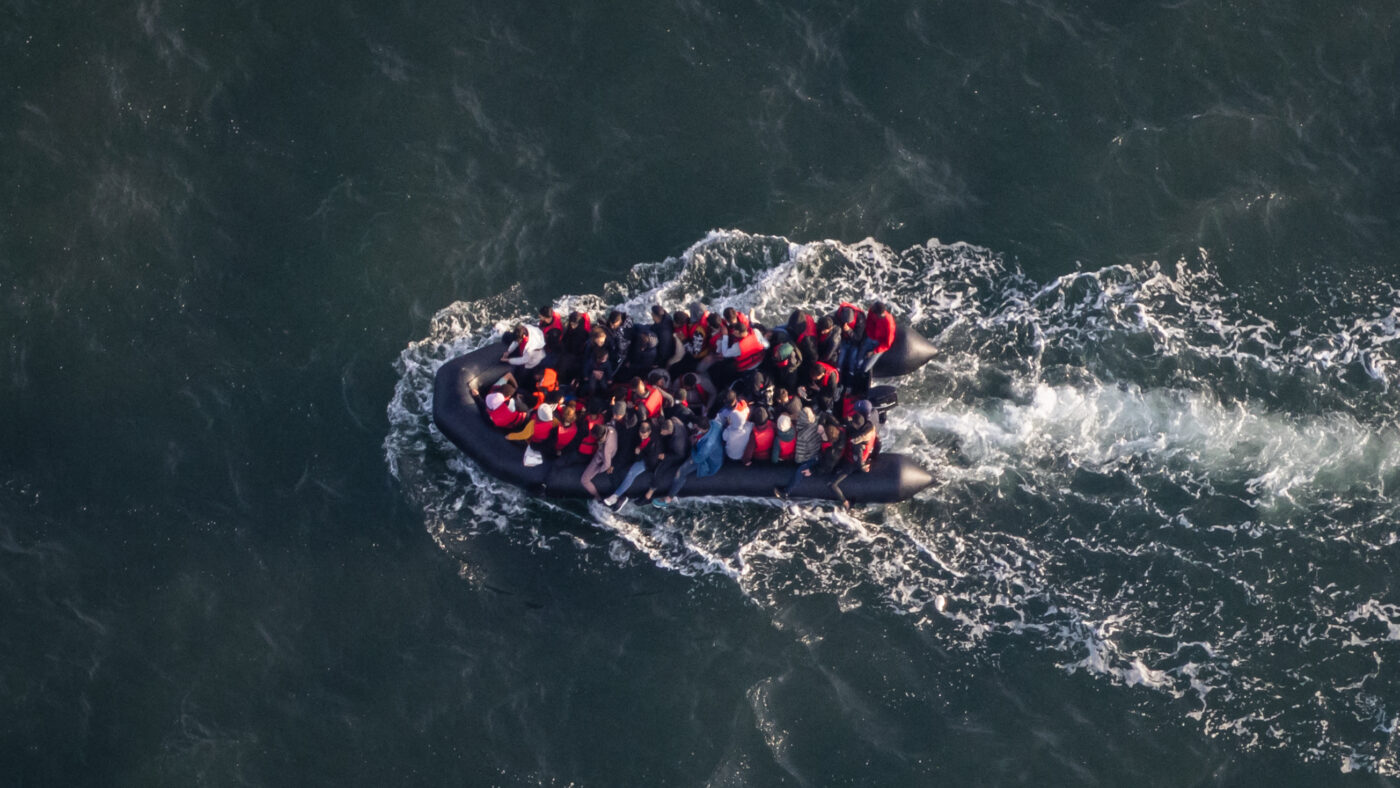The Home Secretary has been in the United States questioning whether the global refugee system is ‘fit for our modern age’. This is a pertinent question as Britain’s asylum policy is poised to be one of the key battlegrounds in the next general election. With Channel crossings surging and eight out of ten of the UK public lacking confidence in the government’s ability to ‘stop the boats’, reform is crucial. One step towards ensuring that Britain’s asylum policy is fit and fair in the modern age is to implement a humanitarian visa.
The current asylum system is in a state of disarray. Over 20,000 irregular migrants have reached Britain’s shores on small boats this year alone. In the meantime, people smugglers continue to profit and the asylum backlog is costing the taxpayers nearly £4bn a year.
Tragically, the failures of current policy often lead to dire consequences, as people smugglers send migrants across the water on unseaworthy vessels in treacherous conditions. Tragedy has struck several times throughout the summer, including the drowning of six people attempting to cross the Channel in August.
Dangerous irregular Channel crossings happen, in part, because foreign nationals can only apply for asylum in the UK if they are physically present in the country. Consequently, asylum seekers are forced into using dangerous and expensive routes run by criminal gangs.
The introduction of a humanitarian visa, under which a capped number of people can apply from a British consulate to gain safe access to Britain, would allow a safe and legal route for those in genuine need of protection to subsequently claim asylum in the UK.
This is particularly important in the context of the Illegal Migration Act 2023. The Act effectively bans asylum for anyone who has arrived irregularly by detaining and deporting them immediately, regardless of whether they are a genuine asylum seeker or not.
No matter how compelling an asylum claim may be for those from turbulent countries like Iran, Syria, Sudan or Eritrea, the Illegal Migration Act deprives them of protection. Until this Act, one could apply for asylum after arriving irregularly, but this is no longer the case, even though two-thirds of those who cross the Channel would be classified as refugees if the Home Office processed their claim.
For those who need genuine protection, this step is regressive. Therefore, there must be a safe and legal pathway to the UK for humanitarian reasons to claim asylum.
In 2021, Iranians were escaping an oppressive regime that crushed the rights of individuals, used military force against its citizens and persecuted religious minorities. In that same year, they also constituted 29% of irregular Channel crossings, with over 8,000 Iranians arriving on small boats. Also in 2021, 10% of crossings were by Eritrean nationals; a country whose forces have committed crimes against humanity and destroyed refugee camps. In the search for a better life, they were at the mercy of criminal gangs and people smugglers. A humanitarian visa would change that.
In this, we should learn from international examples. In France, humanitarian visas were allowed for the victims of the devastating 2010 Haiti earthquake and for Iraqi Christians after the attack on Baghdad Cathedral. Critically, France tailored its humanitarian visa scheme to countries that were disproportionately fragile and whose people were more likely to be persecuted or in need of humanitarian assistance. Some 3,000 humanitarian visas were offered to Syrian refugees who were displaced in surrounding countries due to the nation’s civil war, repression by government forces and the threat from Islamic State.
Similarly, in Italy, during the Arab Spring, when uprisings in the Middle East and North Africa displaced almost 3m people a year and exacerbated civil wars in Syria, Libya and Yemen, humanitarian visas were offered for the most in need of protection.
In a UK context, likewise, an annual cap can be put on the number of places available under a humanitarian visa, subject to official review each year and can be designed to be proportionate to the fragility of certain countries. For example, the number of humanitarian visas for those from Iran or Eritrea could be higher because in 2021, due to the persecution many Iranians faced, asylum was granted in 89% of cases. Meanwhile, in the same year, Eritrean nationals had an asylum acceptance rate of 97%.
This policy would also be a popular one. As shown in Bright Blue’s latest report, a clear majority (57%) of the UK public support the implementation of a humanitarian visa. The policy has universal appeal; its majority support transcends age groups, income groups and political affiliation.
In that, the UK Government should set up a similar scheme to those seen in France and Italy to provide safe and legal access to Britain for a capped number of asylum seekers fleeing persecution, violence and conflict, rather than forcing them into dangerous Channel crossings using small boats and leaving the already-persecuted at the mercy of criminal gangs.
Click here to subscribe to our daily briefing – the best pieces from CapX and across the web.
CapX depends on the generosity of its readers. If you value what we do, please consider making a donation.


